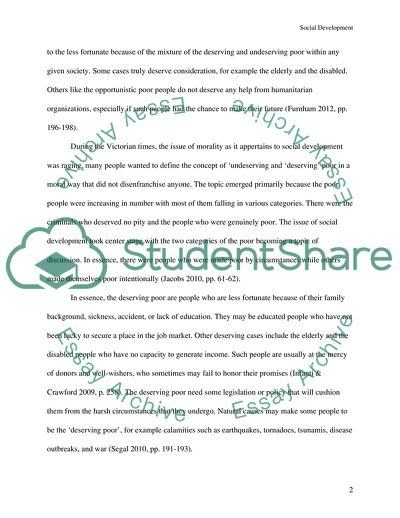Cite this document
('Deserving' and 'Undeserving' Poor Concepts in Social Development Essay Example | Topics and Well Written Essays - 2000 words - 1, n.d.)
'Deserving' and 'Undeserving' Poor Concepts in Social Development Essay Example | Topics and Well Written Essays - 2000 words - 1. https://studentshare.org/social-science/1839574-social-development
'Deserving' and 'Undeserving' Poor Concepts in Social Development Essay Example | Topics and Well Written Essays - 2000 words - 1. https://studentshare.org/social-science/1839574-social-development
('Deserving' And 'Undeserving' Poor Concepts in Social Development Essay Example | Topics and Well Written Essays - 2000 Words - 1)
'Deserving' And 'Undeserving' Poor Concepts in Social Development Essay Example | Topics and Well Written Essays - 2000 Words - 1. https://studentshare.org/social-science/1839574-social-development.
'Deserving' And 'Undeserving' Poor Concepts in Social Development Essay Example | Topics and Well Written Essays - 2000 Words - 1. https://studentshare.org/social-science/1839574-social-development.
“'Deserving' And 'Undeserving' Poor Concepts in Social Development Essay Example | Topics and Well Written Essays - 2000 Words - 1”. https://studentshare.org/social-science/1839574-social-development.


